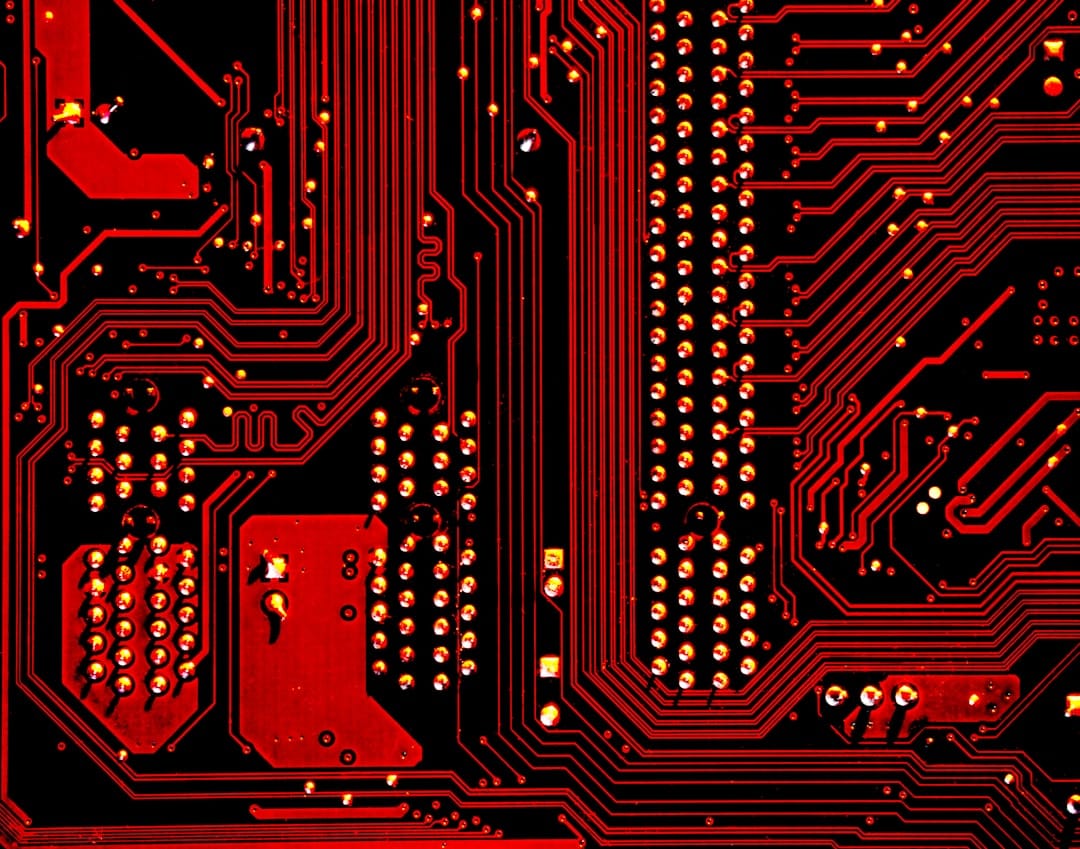The evolution of energy systems has ushered in the era of smart grids, which represent a significant leap from traditional electrical grids. Smart grids integrate advanced technologies, such as digital communication, automation, and data analytics, to enhance the efficiency, reliability, and sustainability of electricity distribution.
This transformation is not merely a technological upgrade; it signifies a paradigm shift in how energy is produced, distributed, and consumed. Smart grid operations encompass a wide array of components, including smart meters, sensors, and advanced distribution management systems. These elements work in concert to optimize energy flow and improve operational efficiency.
For instance, smart meters provide consumers with detailed information about their energy usage patterns, empowering them to make informed decisions about their consumption. Additionally, utilities can leverage data analytics to predict demand fluctuations and manage resources more effectively. However, the interconnected nature of smart grids also introduces new complexities and vulnerabilities that must be addressed to ensure their safe and reliable operation.
Key Takeaways
- Smart grid operations involve the use of advanced technologies to improve the efficiency and reliability of the electrical grid.
- Cybersecurity is crucial in smart grid operations to protect against potential cyber threats and attacks that could disrupt the grid and cause widespread outages.
- Risks and threats to smart grid operations include cyber attacks, data breaches, and unauthorized access to critical infrastructure.
- Technologies and strategies for cybersecurity in smart grid operations include encryption, intrusion detection systems, and regular security audits.
- Government and regulatory bodies play a key role in ensuring cybersecurity in smart grid operations through the development and enforcement of standards and regulations.
Importance of Cybersecurity in Smart Grid Operations
Consequences of Inadequate Cybersecurity
A successful cyberattack can have devastating consequences, including widespread power outages, financial losses, and risks to public safety. Moreover, the repercussions of inadequate cybersecurity extend beyond immediate operational disruptions, posing long-term threats to national security and economic stability.
The Risks of Cascading Failures
A coordinated cyberattack on critical infrastructure can have far-reaching consequences, crippling entire regions and leading to cascading failures across various sectors that rely on electricity. This underscores the importance of robust cybersecurity measures in safeguarding the integrity of smart grid operations and ensuring they can withstand evolving threats.
Ensuring the Integrity of Smart Grid Operations
In conclusion, cybersecurity is essential for protecting smart grid infrastructure, maintaining public trust in energy systems, and preventing long-term implications for national security and economic stability. By prioritizing robust cybersecurity measures, smart grid operators can ensure the reliability and resilience of their operations, even in the face of evolving cyber threats.
Risks and Threats to Smart Grid Operations

The landscape of risks and threats facing smart grid operations is multifaceted and constantly evolving. One of the primary concerns is the potential for cyberattacks from malicious actors, including hackers, state-sponsored entities, and even insider threats. These attacks can take various forms, such as Distributed Denial of Service (DDoS) attacks that overwhelm systems with traffic or ransomware attacks that encrypt critical data until a ransom is paid.
The increasing sophistication of these threats necessitates a proactive approach to cybersecurity. In addition to cyber threats, physical risks also pose significant challenges to smart grid operations. Natural disasters, such as hurricanes or earthquakes, can damage infrastructure and disrupt service delivery.
Furthermore, vandalism or sabotage can compromise the physical security of critical assets. The convergence of cyber and physical threats creates a complex risk environment where a single vulnerability can be exploited in multiple ways. For example, an attacker might gain access to a control system through a physical breach and then launch a cyberattack from within the network.
This interconnectedness underscores the need for comprehensive risk assessments that consider both cyber and physical security dimensions.
Technologies and Strategies for Cybersecurity in Smart Grid Operations
To combat the myriad threats facing smart grid operations, a range of technologies and strategies have been developed to enhance cybersecurity. One key technology is the implementation of advanced encryption protocols that protect data transmitted across networks. By ensuring that sensitive information remains confidential and secure from interception, encryption serves as a foundational element of cybersecurity in smart grids.
Another critical strategy involves the deployment of intrusion detection systems (IDS) that monitor network traffic for suspicious activity. These systems utilize machine learning algorithms to identify anomalies that may indicate a cyber threat. By providing real-time alerts to operators, IDS can facilitate rapid response to potential breaches before they escalate into more significant incidents.
Additionally, segmentation of networks into distinct zones can limit the spread of an attack by isolating critical systems from less secure areas. Regular software updates and patch management are also essential components of a robust cybersecurity strategy. Cybercriminals often exploit known vulnerabilities in outdated software to gain unauthorized access to systems.
By maintaining up-to-date software and promptly addressing vulnerabilities, utilities can significantly reduce their exposure to cyber threats.
Role of Government and Regulatory Bodies in Ensuring Cybersecurity in Smart Grid Operations
Government agencies and regulatory bodies play a pivotal role in establishing frameworks for cybersecurity in smart grid operations. In many countries, national energy regulators are tasked with developing standards and guidelines that utilities must adhere to in order to protect critical infrastructure. For example, the North American Electric Reliability Corporation (NERC) has established Critical Infrastructure Protection (CIP) standards that outline cybersecurity requirements for electric utilities in North America.
In addition to setting standards, governments often provide resources and support for cybersecurity initiatives within the energy sector. This may include funding for research and development of new technologies or facilitating information sharing among utilities regarding emerging threats and best practices. Collaborative efforts between government entities and private sector stakeholders are crucial for creating a unified approach to cybersecurity that addresses the unique challenges posed by smart grid operations.
Furthermore, international cooperation is increasingly important as cyber threats transcend national borders. Governments must work together to share intelligence on cyber threats and develop coordinated responses to incidents that may impact multiple countries. This collaborative approach not only enhances individual nations’ cybersecurity postures but also contributes to global efforts to secure critical infrastructure.
Collaboration and Partnerships in Enhancing Cybersecurity for Smart Grid Operations

Stakeholder Collaboration for Comprehensive Strategies
Collaboration among various stakeholders is essential for enhancing cybersecurity in smart grid operations. Utilities, technology providers, government agencies, and academic institutions must work together to develop comprehensive strategies that address the evolving threat landscape. Public-private partnerships can facilitate knowledge sharing and resource allocation, enabling stakeholders to leverage each other’s strengths in combating cyber threats.
Implementing Cutting-Edge Cybersecurity Solutions
For instance, utilities can collaborate with technology vendors to implement cutting-edge cybersecurity solutions tailored to their specific needs. By engaging with experts in cybersecurity technology, utilities can gain insights into emerging trends and best practices that can be applied within their operations. Additionally, academic institutions can contribute valuable research on cybersecurity methodologies and threat intelligence that can inform industry practices.
Information Sharing and Threat Intelligence
Information sharing is another critical aspect of collaboration in enhancing cybersecurity. Establishing platforms for utilities to share threat intelligence can help organizations stay informed about emerging risks and vulnerabilities. Initiatives such as the Electricity Information Sharing and Analysis Center (E-ISAC) provide a forum for utilities to exchange information on cyber threats and incidents, fostering a culture of vigilance within the industry.
Training and Education for Cybersecurity in Smart Grid Operations
The human element is often the weakest link in cybersecurity defenses; therefore, training and education are paramount in fortifying smart grid operations against cyber threats. Utilities must invest in comprehensive training programs that equip employees with the knowledge and skills necessary to recognize potential threats and respond effectively. This includes not only technical training for IT personnel but also awareness programs for all employees who interact with smart grid systems.
Regular training sessions should cover topics such as phishing awareness, secure password practices, and incident response protocols. By fostering a culture of cybersecurity awareness throughout the organization, utilities can empower employees to act as the first line of defense against potential attacks. Additionally, simulations of cyber incidents can provide valuable hands-on experience for employees, allowing them to practice their response strategies in a controlled environment.
Collaboration with educational institutions can further enhance training efforts by providing access to specialized programs focused on cybersecurity in energy systems. Partnerships with universities can facilitate internships or co-op programs that allow students to gain practical experience while contributing to the utility’s cybersecurity initiatives. By cultivating a skilled workforce equipped with the latest knowledge in cybersecurity practices, utilities can strengthen their overall resilience against cyber threats.
Future Trends and Challenges in Cybersecurity for Smart Grid Operations
As technology continues to advance at an unprecedented pace, the future of cybersecurity in smart grid operations will be shaped by several emerging trends and challenges. One notable trend is the increasing adoption of artificial intelligence (AI) and machine learning (ML) technologies for threat detection and response.
However, the integration of AI into cybersecurity also presents challenges related to ethical considerations and potential biases in algorithms. Ensuring that AI systems are transparent and accountable will be crucial as they become more prevalent in smart grid operations. Additionally, as smart grids evolve to incorporate more decentralized energy resources such as microgrids and distributed generation systems, new vulnerabilities may emerge that require innovative approaches to cybersecurity.
Another challenge lies in the growing complexity of regulatory requirements surrounding cybersecurity in smart grids. As governments continue to develop new standards and guidelines, utilities must navigate an increasingly intricate landscape while ensuring compliance without stifling innovation. Balancing regulatory obligations with the need for agility in responding to emerging threats will be essential for maintaining resilient smart grid operations.
In conclusion, while the future holds great promise for smart grid operations through advancements in technology and collaboration among stakeholders, it also presents significant challenges that must be addressed proactively through comprehensive cybersecurity strategies.
A related article discussing the best paying jobs in tech for 2023 can be found at this link. This article provides valuable insights into the highest paying tech jobs in the upcoming year, which is crucial information for professionals looking to advance their careers in the industry. Understanding the job market trends and salary expectations can help individuals make informed decisions about their career paths and future opportunities.
FAQs
What is cybersecurity in the context of smart grid operations?
Cybersecurity in the context of smart grid operations refers to the protection of the digital infrastructure and communication networks that enable the functioning of smart grid technologies. It involves safeguarding against cyber threats and ensuring the secure operation of smart grid systems.
Why is cybersecurity important for smart grid operations?
Cybersecurity is important for smart grid operations because it helps to protect critical infrastructure from cyber attacks, unauthorized access, and data breaches. It ensures the reliability, resilience, and security of smart grid systems, which are essential for the efficient and safe delivery of electricity.
How does cybersecurity enable secure smart grid operations?
Cybersecurity enables secure smart grid operations by implementing measures such as encryption, access controls, network monitoring, and threat detection to protect against cyber threats. It helps to mitigate risks and vulnerabilities in smart grid systems, ensuring the integrity and confidentiality of data and the reliability of operations.
What are some cybersecurity challenges in smart grid operations?
Some cybersecurity challenges in smart grid operations include the increasing complexity of interconnected systems, the potential for remote cyber attacks, the need to secure legacy infrastructure, and the integration of new technologies such as IoT devices and cloud computing. Additionally, the reliance on third-party vendors and the shortage of cybersecurity professionals pose challenges for securing smart grid operations.
What are some cybersecurity solutions for smart grid operations?
Some cybersecurity solutions for smart grid operations include implementing robust security protocols, conducting regular risk assessments and audits, training personnel on cybersecurity best practices, and investing in advanced security technologies such as intrusion detection systems and security analytics. Collaboration with industry partners and government agencies is also important for sharing threat intelligence and best practices.

